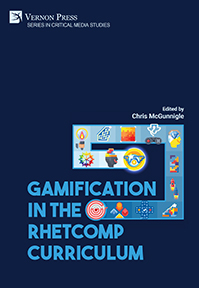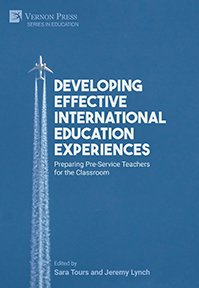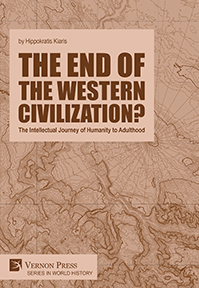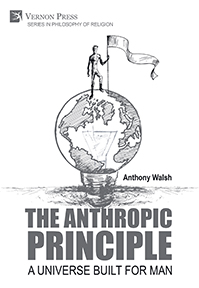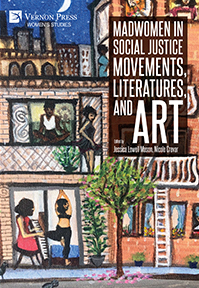Search
Browse
by Publication status
by Subject
Anthropology (26) Art (122) Business and Finance (25) Cognitive Science and Psychology (53) Communication and Journalism (43) Economics (61) Education (65) History (145) Human Geography (22) Interdisciplinary (40) Language and Linguistics (128) Law (16) Music Studies (18) Philosophy (153) Political Science and International Relations (99) Sociology (295) Statistics and Quantitative Methods (19)by Series
Series in Literary Studies (62) Series in Philosophy (58) Series in Education (49) Series in Sociology (42) Series in World History (31) Series in Politics (30) Bridging Languages and Scholarship (27) Series in Language and Linguistics (25) Cognitive Science and Psychology (20) Series in Philosophy of Religion (20) Series in American History (19) Series in Art (19) Critical Perspectives on Social Science (16) Series in Cinema and Culture (16) Curating and Interpreting Culture (15) Series on the History of Art (14) Series in Anthropology (13) Series in Critical Media Studies (13) Economics (13) Series in Business and Finance (12) Series in Music (12) Series in Communication (9) Series in Performing Arts (9) Philosophy of Personalism (8) Series in Law (8) Series in Economic Methodology (7) Series on Climate Change and Society (7) Classics in Economics (6) Series in Economic Development (6) Women's Studies (6) Philosophy of Forgiveness (5) Series in Built Environment (5) Series in Economic History (5) Series in Philosophy of Science (4) Series in Social Equality and Justice (4) Series on the History of Science (4) Serie en Sociología (3) Series in Contemporary History (3) Series in Creative Writing Studies (3) Series in Design (3) The Interdisciplinary Built Environment (3) Serie En Estudios Literarios (2) Series in Heritage Studies (2) Series in Innovation Studies (2) Serie en Ciencias Políticas (1) Serie en Comunicación y Medios (1) Serie en Entorno Construido (1) Serie en Estudios Culturales (1) Serie en Filosofía (1) Serie en Filosofía de la Ciencia (1) Serie en Música (1) Series in Classical Studies (1) Series in Economics of Technological Change (1) Series in Philosophy of Race (1) Series in Urban Studies (1)by Language
English Spanishby Author
Gamification in the RhetComp Curriculum
Edited by
Chris McGunnigle, Seton Hall University
Availability: In stock
334pp. ¦ $93 £77 €88
Gamification is an up and coming popular trend in all levels and types of education, including public and private schools, higher education, the military, the private sector, and elsewhere. Gamification introduces aspects of game design like teamwork, competition, rewards and prizes, storytelling, and more into lesson plan units. In many cases, actual games, whether it be Scrabble, Hangman, Candy Crush, Dungeons & Dragons, and many others, are adapted into educational tools. This chapter collection will specifically look at the use of gamification techniques in Freshmen Writing courses and related Composition, Writing and Rhetoric classes. Each chapter will provide sample gamified lessons supported by relevant scholarship in both Gamification Theory and Writing Studies.
Developing Effective International Education Experiences: Preparing Pre-Service Teachers for the Classroom
Edited by
Sara Tours, University of Pennsylvania
and Jeremy M. Lynch, Slippery Rock University
Availability: In stock
260pp. ¦ $88 £75 €83
Globally, and within the United States, we continue to progress toward a more diverse and inclusive culture. This fact is perhaps reflected nowhere better than in the public school system in the United States, where, by 2029 (NCES, 2020), non-white students will outnumber white students in classrooms. The challenges that the current system of education confronts in ensuring equitable access and equal achievement are also well-documented (Darling-Hammond, 2015). A key component in the re-shaping and development of a more equitable and inclusive system are the pre-service teachers enrolled in our college and university teacher preparation programs across the country. As we prepare for the diverse classrooms of the future, we need to prepare the teachers of the future to not only be able to teach all students but to also have the cultural competencies to ensure the same access and opportunities are provided to all students. It has been well documented (Cunningham, 2015; Lupi & Turner, 2013) that international education experiences, or international field experiences, have a positive effect on both the professional development and cultural competencies of pre-service teachers. Across a wide range of performance outcomes, pre-service teachers with international field experiences are better equipped to enter the field (DeVillar & Jiang, 2012) and may even persist longer in the profession (Egeland, 2016). However, not all international experiences provide the same positive outcomes. In this book, we will explore the importance of developing culturally competent educators in the United States education system, the research that supports the benefits of international education experiences, and how to develop effective international education experiences that will prepare pre-service teachers for the classrooms of the next decade and beyond.
The end of the Western Civilization? The Intellectual Journey of Humanity to Adulthood
Hippokratis Kiaris, University of South Carolina
Availability: In stock
118pp. ¦ $50 £40 €47
Civilizations can be perceived as living human beings that are born, mature, age, and ultimately die and disappear, passing their legacy to the future generations. These transitions may be projected to the different stages of cognitive development of children. The Western Civilization, which embodies our current state of cultural advancement from the Classic Greek to the modern period, can be paralleled by the gradual transitions of human beings toward adulthood. From this perspective, the ancient Greek era resembles the toddler years of humanity at which the first “why”-type questions are being asked. The theocratic period that followed until the Renaissance can be seen as our childhood, when people lived their lives under the tight boundaries set by religious authorities. The period spanning from the Enlightenment until almost the end of the 20th century can be considered as our teenage years when people rediscover their past, are liberated from superstition, and set the path forward based on reason by a manner at which the distinction between plausible and feasible is vague. Within this scheme, postmodernism also finds its place in our teenhood. The last few decades, from this perspective, signify our entrance to adulthood at which major questions are considered answered, or at least settled, and the only path forward perceived as feasible is the one that is followed already, a state that is bringing us closer to our intellectual aging and its inevitable death. Some signs of aging-related pathologies are already manifested in today’s technology-intensive society. By identifying our intellectual age and by appreciating our health status, we may be able to proactively delay or even avert our intellectual aging and death.
The Anthropic Principle: A Universe Built for Man
Anthony Walsh, Boise State University
Availability: In stock
180pp. ¦ $63 £50 €58
The Copernican Principle states that humankind is an insignificant assemblage of chemical scum living on an accidental planet in a suburb of a purposeless universe. Many prominent scientists, including Nobel laureate physicists, have questioned this scurrilous principle, which has led physicists to propose the Anthropic Principle. This principle posits a purposeful link between the structure of the universe and the existence of humankind and its specialness. The numerous features of the universe are so freakishly fine-tuned for the existence of intelligent life that physicists are beginning to come to grips with the notion that our universe is profoundly purposeful and that there is a powerful and incredibly intelligent Mind behind it all.
Madwomen in Social Justice Movements, Literatures, and Art
Edited by
Jessica Lowell Mason, University at Buffalo
and Nicole Crevar, University of Arizona
Availability: In stock
263pp. ¦ $90 £74 €84
'Madwomen in Social Justice Movements, Literatures, and Art' boldly reasserts the importance of the Madwoman more than four decades after the publication of Sandra Gilbert and Susan Gubar’s seminal work in feminist literary criticism, 'The Madwoman in the Attic'. Since Gilbert and Gubar’s work was published, the Madwoman has reemerged to do important work, rock the academic boat, and ignite social justice agency inside and outside of academic spaces, moving beyond the literary context that defined the Madwoman in the late 20th century. In this dynamic collection of essays, scholars, creative writers, and Mad activists come together to (re)define the Madwoman in pluralistic and expansive ways and to realize new potential in Mad agency. This collection blazes new directions of thinking through Madness as a gendered category, comprised of a combination of creative works that (re)imagine the figure of the Madwoman, speeches in which Mad-identifying artists and writers reclaim the label of “Madwoman,” and scholarly essays that articulate ambitious theories of the Madwoman. The collection is an interdisciplinary scholarly resource that will appeal to multiple academic fields, including literary studies, disability studies, feminist studies, and Mad studies. Additionally, the work contributes to the countermovement against colonial, sanist, patriarchal, and institutional social practices that continue to silence women and confine them to the metaphorical attic. Appealing to a broad audience of readers, 'Madwomen in Social Justice Movements, Literatures, and Art' is a cutting-edge inquiry into the implications of Madness as a theoretical tool in which dissenting, deviant, and abnormal women and gender non-conforming writers, artists, and activists open the door to Mad futurities.

